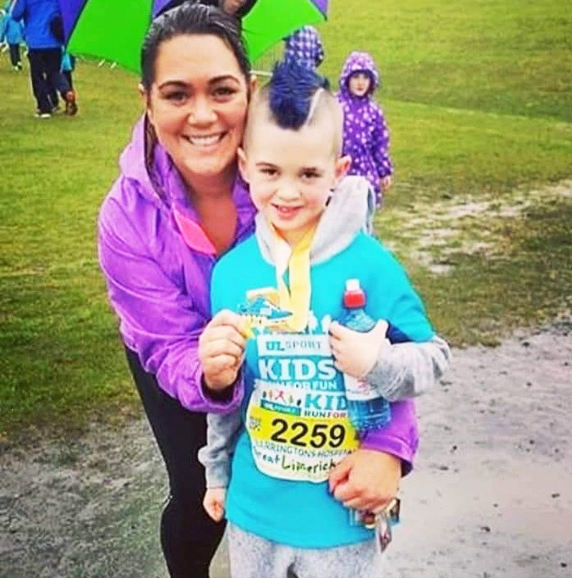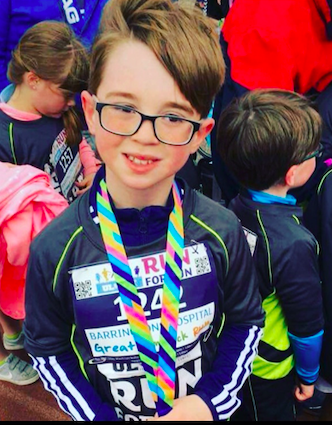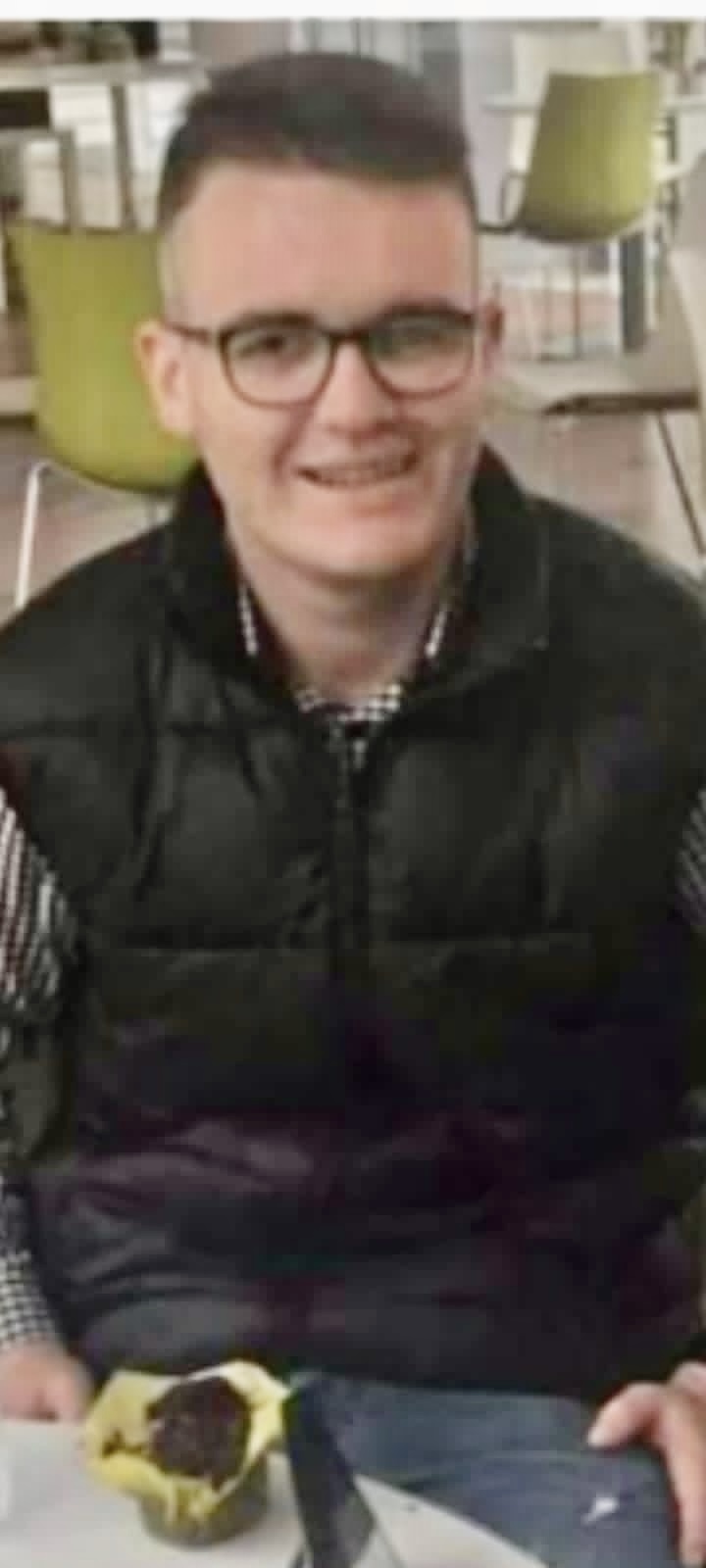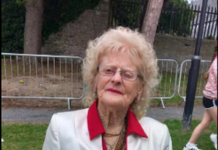
ELEVEN year old Brooklyn Colbert was the apple of his Limerick parents’ eyes, but their whole worlds crumbled when Brooklyn was stabbed and beaten to death by his half uncle, Paddy Dillon, in 2019.
Brooklyn’s mother, Sonia Aylmer, said Section 252 of the Children’s Act 2001, which had prevented her from naming her beloved murdered son for the past eight months, served to only compound her grief.
Despite a change in the law last week, allowing children to be named in such circumstances, reporting restrictions in Brooklyn’s case had remained in place until they were lifted this morning at the Central Criminal Court, following an application by RTE.
“It was like I lost Brooklyn all over again, not being able to speak his name. In fact, it was like he never existed. Why should Brooklyn be hidden from the world? There was so much in my little boy, why should he not be remembered?” Ms Aylmer said.
Patrick Dillon whose photograph is being published for the first time in relation to the case, admitted stabbing Brooklyn 27 times, and striking him with a hammer.
Dillon, (28), from Moyross, Limerick, was sentenced last February to the mandatory term of life in prison after he pleaded guilty to murder.
Ms Aylmer said it was “difficult enough” attending last February’s sentencing hearing, and reading out a victim impact statement, however she added, learning she would not be able to identify Brooklyn after Dillon was jailed, was hard to swallow: “That was a big shock and a big disappointment and since that day I was fighting to change that law.”
Ms Aylmer said she felt the court gagging order which prevented her speaking publicly about her “beautiful boy”, served only to protect Patrick Dillon.
She said, in her opinion, the order did nothing to protect her dead son: “It put a lot of anger in me, and I felt disappointment in the justice system. I felt no support and I felt everything was going in Paddy Dillon’s favour, and that he was the only one being protected.”
“It caused me a lot of stress.”
“When I left the court I wasn’t able to say Brooklyn’s name, or even speak about him. I felt like I had to hide my face as if I had done something wrong, as if I committed a crime.”
Ms Aylmer had campaigned for the amendment to the Children’s Act along with other parents who lost their children in similar circumstances: “There’s lots of parents like me, that are dealing with the same thing, and that were not able to speak about their children, it’s heartbreaking.”
—Brooklyn—
“Brooklyn was a very placid child, very fun-loving and he would get into mischief but he was funny, everyone that met him instantly liked him, he just had that aura about him”.
Mother and son shared an incredibly close bond, together they joined a boxing club, participated in the annual Great Limerick Run, enjoyed movie nights in, and attended keep fit classes together: “We had a beautiful relationship. Brooklyn was also a very good friend, a good neighbour, protective and kind.”
“He really left a lasting impression on everyone he met. He was just full of fun and full of love, full of laughs, you’d always have a belly-laugh everyday with him.”
Ms Aylmer said she wanted to speak publicly about Brooklyn in order to “keep his memory alive”.
“I am his voice, and as long as I am alive there is a part of him alive. I want to carry on his legacy, helping people in my situation.”
When she is ready to do so, she plans to organise a support group for families going through and who will go suffer similar loss.
Her “first Christmas without Brooklyn was terribly hard and I had no one to reach out to” but she later found solace in meeting Kathleen Chada, whose husband Sanjeev murdered their two sons Eoghan (10), Ruairi (5), on July 29, 2013.
“That’s why it’s very important for other parents to know there is help out there, and that’s why it’s so important our stories are not anonymised.”
She praised Support After Homicide, a national voluntary group which also wrote to the Minister for Justice, Helen McEntee, to push for the amendment to Section 252 of the Children’s Act, allowing the identification of children murdered in the State.
“God forbid this happens to someone else, I’d like to be bale to talk other parents through what they are going to be facing.“
Her son’s murder two and half years ago is obviously still “very, very hard” to comprehend.
“Somedays I tell myself he is in his Dad’s house or his Nana’s house, because it makes it that bit easier.”
Speaking about Brooklyn publicly is “a huge relief”, she said.
“This interview is for Brooklyn. He liked helping people and he loved to see people happy, and he would love that I would be helping people in his memory, he’d be really happy about that.”
— Killer Patrick Dillon —
Ms Aylmer said she has been left with so many unanswered questions as to why her half brother murdered her “beautiful boy”.
She described her half-brother Patrick Dillon as “evil”.
“Brooklyn never made people angry or upset people, so that’s why I am so confused as to why this happened him. I don’t know how anybody could do anything wrong to a child but to do something to someone whose so loveable and who’s in your life for so long was evil,” she said.
“He always made Paddy laugh, and he would have been there for him. They were an uncle and nephew, they had a (good) relationship, so I can’t get my head around this.”
She said Brooklyn and herself “went for meals and drives” with Dillon, and he would “come over and play the PlayStation with Brooklyn, they’d be slagging one another about soccer teams”.
Ms Aylmer revealed that 24 hours prior to murdering Brooklyn, Dillon spent the entire day with them.
“He was with us the night before, all day he was with us, we went for a meal and we dropped him home about midnight and he asked could Brooklyn help him clean out a shed (the following day).”
“Brooklyn went over and had met members of my family a few minutes before he went into this house where this happened, and there was no fear in Brooklyn then and he was happy out, eating sweets, and I just still can’t get my head around it.”
Dillon, with an address at Dalgaish Park, Moyross, struck Brooklyn with a hammer and stabbed him 27 times in the torso, arms and neck in a relative’s house on November 3, 2019.
During his sentencing hearing, Mr Justice Michael White said Dillon was guilty of a “horrific breach of trust” and an “unspeakable violent crime”.
Dillon himself raised the alarm, walking into Henry Street garda station and informing gardai, “I’ve killed my nephew”.
He told gardai a voice in his head told him to stab Brooklyn.
In a victim impact statement, Brooklyn’s father Wayne Colbert, remarked “other innocent children are safer with the perpetrator of this horrific crime behind bars”.
Dillon wrote a letter of apology, however in response to this, Ms Aylmer says she does not believe it: “I don’t feel like he has any remorse, I don’t know why or how anyone could do something so evil, I’ll never be able to understand it.”













